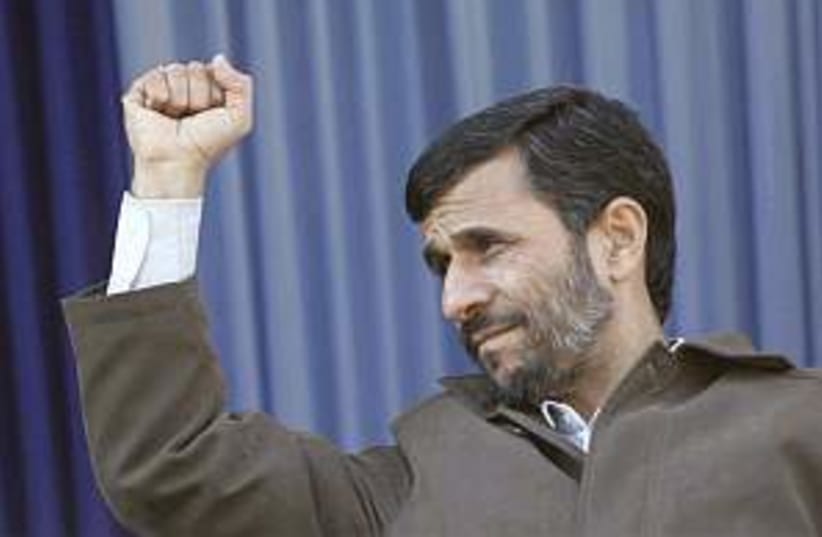| THE IRANIAN THREAT | |
| JPost.com special: news, opinion, blogs and more |
India enacts sanctions against Iran
Olmert urges tougher measures, Ahmadinejad vows to pursue enrichment.


| THE IRANIAN THREAT | |
| JPost.com special: news, opinion, blogs and more |